-
 bitcoin
bitcoin $87959.907984 USD
1.34% -
 ethereum
ethereum $2920.497338 USD
3.04% -
 tether
tether $0.999775 USD
0.00% -
 xrp
xrp $2.237324 USD
8.12% -
 bnb
bnb $860.243768 USD
0.90% -
 solana
solana $138.089498 USD
5.43% -
 usd-coin
usd-coin $0.999807 USD
0.01% -
 tron
tron $0.272801 USD
-1.53% -
 dogecoin
dogecoin $0.150904 USD
2.96% -
 cardano
cardano $0.421635 USD
1.97% -
 hyperliquid
hyperliquid $32.152445 USD
2.23% -
 bitcoin-cash
bitcoin-cash $533.301069 USD
-1.94% -
 chainlink
chainlink $12.953417 USD
2.68% -
 unus-sed-leo
unus-sed-leo $9.535951 USD
0.73% -
 zcash
zcash $521.483386 USD
-2.87%
How to read the low-level golden cross of the TRIX indicator? How to judge the medium- and long-term buying point?
The TRIX indicator's low-level golden cross signals a potential bullish trend reversal in crypto trading, useful for medium- and long-term buying decisions.
Jun 06, 2025 at 10:00 pm

The TRIX (Triple Exponential Average) indicator is a momentum oscillator used to identify overbought and oversold conditions in the market, as well as to signal potential trend reversals. One of the key signals traders look for in the TRIX indicator is the low-level golden cross. This article will guide you on how to read the low-level golden cross of the TRIX indicator and how to judge medium- and long-term buying points in the context of cryptocurrency trading.
Understanding the TRIX Indicator
The TRIX indicator is calculated using a triple-smoothed exponential moving average of the price. It helps in filtering out market noise and providing clearer signals about the trend direction. The TRIX line itself oscillates around a zero line, and its movement can be used to identify bullish and bearish trends.
- Positive values indicate bullish momentum.
- Negative values indicate bearish momentum.
- Crossovers above and below the zero line can signal potential trend changes.
Identifying the Low-Level Golden Cross
A low-level golden cross in the context of the TRIX indicator occurs when the TRIX line, after being in negative territory, crosses above the signal line. This signal is particularly significant when it happens at a low level, meaning the TRIX line has been deeply negative before the crossover. This suggests a potential reversal from a bearish to a bullish trend.
To identify a low-level golden cross, follow these steps:
- Monitor the TRIX line: Keep an eye on the TRIX line as it moves in negative territory.
- Watch for the crossover: Look for the TRIX line to cross above the signal line.
- Confirm the low level: Ensure that the crossover happens when the TRIX line is at a low level, indicating strong bearish momentum before the reversal.
Interpreting the Low-Level Golden Cross
When you identify a low-level golden cross, it's important to interpret it correctly. This signal suggests that the bearish momentum is waning and that a bullish trend might be starting. However, it's crucial to use additional tools and indicators to confirm this signal before making a trading decision.
- Look for confirmation from other indicators: Use indicators like the RSI (Relative Strength Index) or MACD (Moving Average Convergence Divergence) to confirm the bullish signal.
- Check the volume: Increased trading volume can confirm the strength of the new bullish trend.
- Analyze the price action: Ensure that the price action supports the bullish signal, such as a breakout from a consolidation pattern.
Judging Medium- and Long-Term Buying Points
Identifying medium- and long-term buying points involves a combination of technical analysis and market understanding. The low-level golden cross can be a starting point, but other factors need to be considered to make a well-informed decision.
Using the Low-Level Golden Cross for Medium-Term Buying
For medium-term buying, the low-level golden cross can be a powerful signal. Here's how to use it effectively:
- Combine with trend analysis: Ensure that the overall trend is supportive of a bullish move. Look at longer-term moving averages to confirm the trend direction.
- Use support and resistance levels: Identify key support and resistance levels to determine potential entry and exit points.
- Set stop-loss orders: Protect your investment by setting stop-loss orders at strategic levels to minimize potential losses.
Using the Low-Level Golden Cross for Long-Term Buying
For long-term buying, the low-level golden cross should be part of a broader analysis. Here's how to approach it:
- Analyze fundamental factors: Consider the fundamentals of the cryptocurrency, such as its technology, team, and market potential.
- Look at historical data: Review historical price movements and trends to understand the cryptocurrency's long-term performance.
- Diversify your portfolio: Use the low-level golden cross as one of many signals to build a diversified portfolio, reducing risk over the long term.
Practical Example of Using the Low-Level Golden Cross
Let's walk through a practical example of using the low-level golden cross to identify a buying point in a cryptocurrency like Bitcoin.
- Step 1: Identify the low-level golden cross: Monitor the TRIX indicator on a daily chart of Bitcoin. Notice that the TRIX line has been in negative territory for an extended period.
- Step 2: Confirm the crossover: Observe the TRIX line crossing above the signal line. Ensure that this crossover happens at a low level, indicating a potential reversal from a bearish to a bullish trend.
- Step 3: Use additional indicators: Check the RSI to see if it's moving out of oversold territory. Look at the MACD to confirm the bullish signal.
- Step 4: Analyze volume and price action: Verify that trading volume is increasing and that the price is breaking out of a consolidation pattern.
- Step 5: Make the trading decision: If all signals align, consider entering a long position in Bitcoin. Set a stop-loss order to manage risk and monitor the trade for further bullish confirmation.
Frequently Asked Questions
Q1: Can the low-level golden cross be used for short-term trading?While the low-level golden cross is primarily used for medium- and long-term trading, it can be adapted for short-term trading with the right adjustments. For short-term trading, you would need to use shorter time frames and combine the TRIX indicator with other short-term indicators like the Stochastic Oscillator or Bollinger Bands.
Q2: How often does the low-level golden cross occur?The frequency of the low-level golden cross depends on market conditions and the volatility of the cryptocurrency being analyzed. In highly volatile markets, you might see more frequent signals, while in more stable markets, the signals might be less common. It's important to use historical data to understand the typical frequency of these signals for a specific cryptocurrency.
Q3: Is the low-level golden cross a reliable signal on its own?The low-level golden cross is a strong signal, but it should not be used in isolation. To increase its reliability, it's crucial to combine it with other technical indicators, volume analysis, and price action. This multi-faceted approach helps to confirm the signal and reduce the likelihood of false positives.
Q4: Can the low-level golden cross be used for other financial instruments?Yes, the low-level golden cross can be applied to other financial instruments beyond cryptocurrencies, such as stocks, forex, and commodities. The principles of identifying and interpreting the signal remain the same, though the specific market dynamics and volatility may differ.
Disclaimer:info@kdj.com
The information provided is not trading advice. kdj.com does not assume any responsibility for any investments made based on the information provided in this article. Cryptocurrencies are highly volatile and it is highly recommended that you invest with caution after thorough research!
If you believe that the content used on this website infringes your copyright, please contact us immediately (info@kdj.com) and we will delete it promptly.
- Bitcoin Under Pressure: Galaxy Analyst Eyes $58K Amidst ETF Outflows and Weakening Debasement Narrative
- 2026-02-03 19:00:02
- Crypto Market Stabilizes as Bitcoin Rebounds; Key Factors Driving the Recovery
- 2026-02-03 19:10:02
- ETH Rebound Ignites L3 Architecture Race: Liquid Chain Eyes the Fragmentation Fix
- 2026-02-03 19:10:02
- Halle Berry Unpacks Prom Queen Racism and Hollywood's Persistent Barriers
- 2026-02-03 19:40:02
- Epstein Files, Israel, and Bitcoin Network: Unpacking the Weekend's Crypto Turmoil and Lingering Control Claims
- 2026-02-03 19:40:02
- Elon Musk, SpaceX, Dogecoin: To the Moon and Beyond with AI-Powered Dreams
- 2026-02-03 19:35:01
Related knowledge
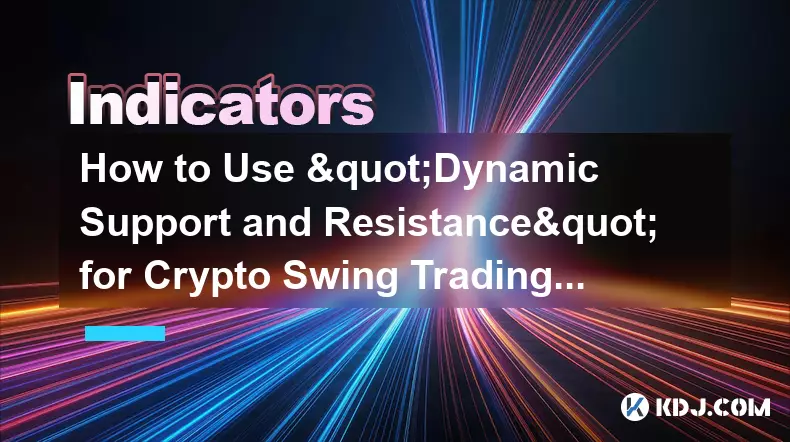
How to Use "Dynamic Support and Resistance" for Crypto Swing Trading? (EMA)
Feb 01,2026 at 12:20am
Understanding Dynamic Support and Resistance in Crypto Markets1. Dynamic support and resistance levels shift over time based on price action and movin...
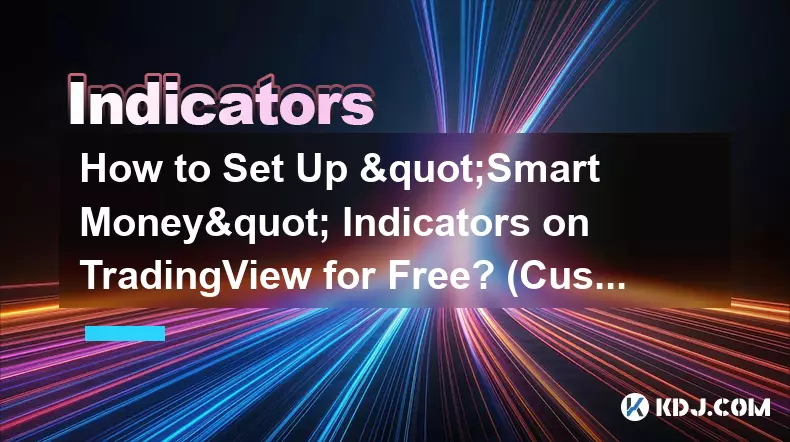
How to Set Up "Smart Money" Indicators on TradingView for Free? (Custom Tools)
Feb 02,2026 at 03:39pm
Understanding Smart Money Concepts in Crypto Trading1. Smart money refers to institutional traders, market makers, and experienced participants whose ...
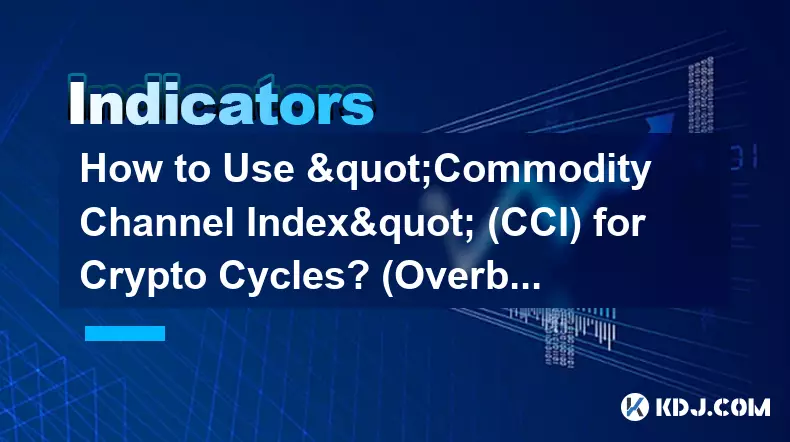
How to Use "Commodity Channel Index" (CCI) for Crypto Cycles? (Overbought)
Feb 03,2026 at 05:00am
Understanding CCI in Cryptocurrency Markets1. The Commodity Channel Index (CCI) is a momentum-based oscillator originally developed for commodities bu...
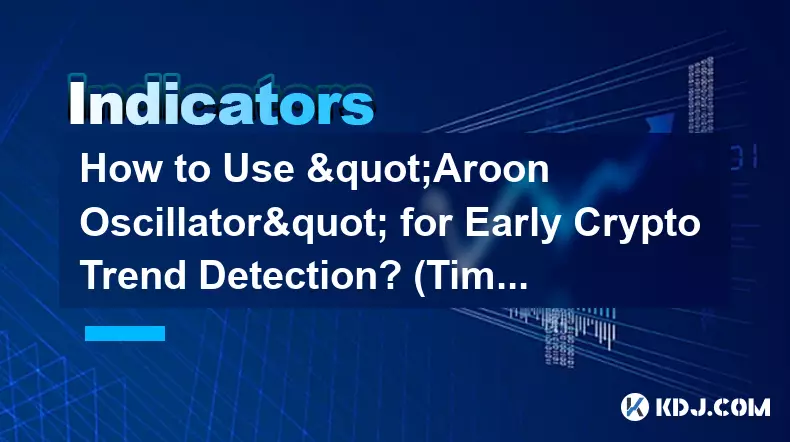
How to Use "Aroon Oscillator" for Early Crypto Trend Detection? (Timing)
Feb 03,2026 at 02:40pm
Understanding the Aroon Oscillator Mechanics1. The Aroon Oscillator is derived from two components: Aroon Up and Aroon Down, both calculated over a us...
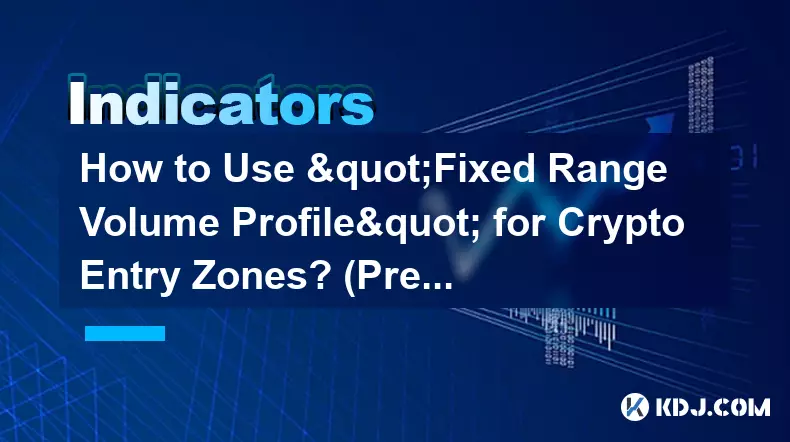
How to Use "Fixed Range Volume Profile" for Crypto Entry Zones? (Precision)
Feb 01,2026 at 10:19pm
Understanding Fixed Range Volume Profile Mechanics1. Fixed Range Volume Profile (FRVP) maps traded volume at specific price levels within a defined ti...
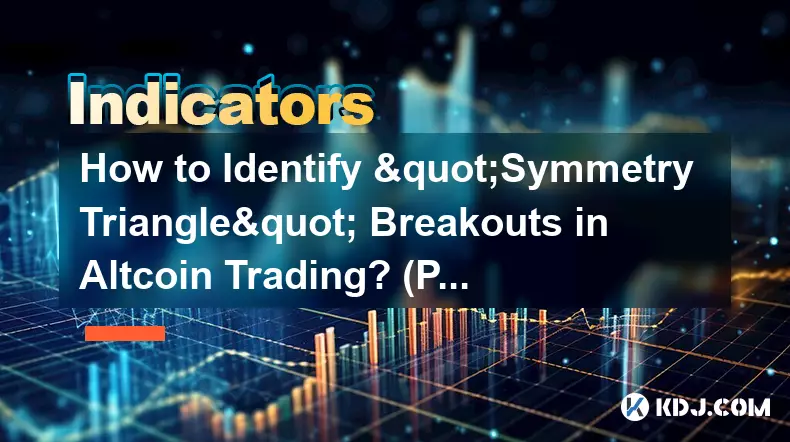
How to Identify "Symmetry Triangle" Breakouts in Altcoin Trading? (Patterns)
Feb 01,2026 at 01:39pm
Symmetry Triangle Formation Mechanics1. A symmetry triangle emerges when price action consolidates between two converging trendlines—one descending an...

How to Use "Dynamic Support and Resistance" for Crypto Swing Trading? (EMA)
Feb 01,2026 at 12:20am
Understanding Dynamic Support and Resistance in Crypto Markets1. Dynamic support and resistance levels shift over time based on price action and movin...

How to Set Up "Smart Money" Indicators on TradingView for Free? (Custom Tools)
Feb 02,2026 at 03:39pm
Understanding Smart Money Concepts in Crypto Trading1. Smart money refers to institutional traders, market makers, and experienced participants whose ...

How to Use "Commodity Channel Index" (CCI) for Crypto Cycles? (Overbought)
Feb 03,2026 at 05:00am
Understanding CCI in Cryptocurrency Markets1. The Commodity Channel Index (CCI) is a momentum-based oscillator originally developed for commodities bu...

How to Use "Aroon Oscillator" for Early Crypto Trend Detection? (Timing)
Feb 03,2026 at 02:40pm
Understanding the Aroon Oscillator Mechanics1. The Aroon Oscillator is derived from two components: Aroon Up and Aroon Down, both calculated over a us...

How to Use "Fixed Range Volume Profile" for Crypto Entry Zones? (Precision)
Feb 01,2026 at 10:19pm
Understanding Fixed Range Volume Profile Mechanics1. Fixed Range Volume Profile (FRVP) maps traded volume at specific price levels within a defined ti...

How to Identify "Symmetry Triangle" Breakouts in Altcoin Trading? (Patterns)
Feb 01,2026 at 01:39pm
Symmetry Triangle Formation Mechanics1. A symmetry triangle emerges when price action consolidates between two converging trendlines—one descending an...
See all articles

























![Discontinuum by: ArchitechGD 100% (1 coin) (Mobile) Geometry Dash [2.2] Discontinuum by: ArchitechGD 100% (1 coin) (Mobile) Geometry Dash [2.2]](/uploads/2026/02/03/cryptocurrencies-news/videos/origin_69814d99e6b61_image_500_375.webp)
















































